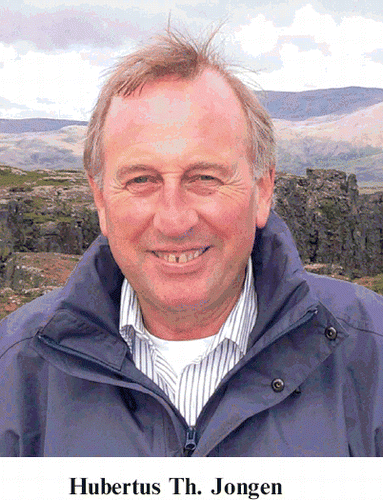
It is a great honour and pleasure to dedicate this special issue of Optimization to the 60th birthday of our friend Hubertus Th. Jongen.
H.T. Jongen is full professor at the RWTH Aachen University and professor at the Universiteit Maastricht (NL). He received a Doctor honoris causa from Shanxi University (P. R. China), and is Miembro Honorario de la Sociedad Colombiana de Investigacion de Operaciones (Colombia) as well as Visitante Distinguido de la Ciudad Puebla (Mexico). From 1965 to 1972 he served as an officer at the Royal Dutch Navy.
In the 1970s, H.T. Jongen introduced a new approach for the investigation of nonlinear optimization problems in finite dimensional spaces. Contrary to the common technique of solving optimization problems by determining in a more or less direct way their local maxima or minima, H.T. Jongen considered the homotopy type of the lower level sets of the goal function on the feasible region as the level varies. In other words, he considered an optimization problem within the framework of Morse Theory. This revolutionary approach to optimization problems, which he created by studying the Chebyshev approximation problem, changed the development of the whole optimization theory completely. As from that time, optimization problems were considered on a much higher mathematical level using more sophisticated methods from Morse Theory, Differential Topology and Singularity Theory. Many central questions in optimization theory as, for instance, the dependence of an optimization problem on its problem data, in particular stability and sensitivity aspects, could now be considered from both the local and global point of view. Also, the global optimization problem appears now in a new light. H.T. Jongen is the pioneer of this important research direction.
H.T. Jongen is liked very much by his students. He is an excellent academic teacher with deep and interesting ideas, and is always ready to help and give advice. Many of his colleagues as well as his students are very thankful to him for his extensive support and kindness.
Diethard Pallaschke and Oliver Stein